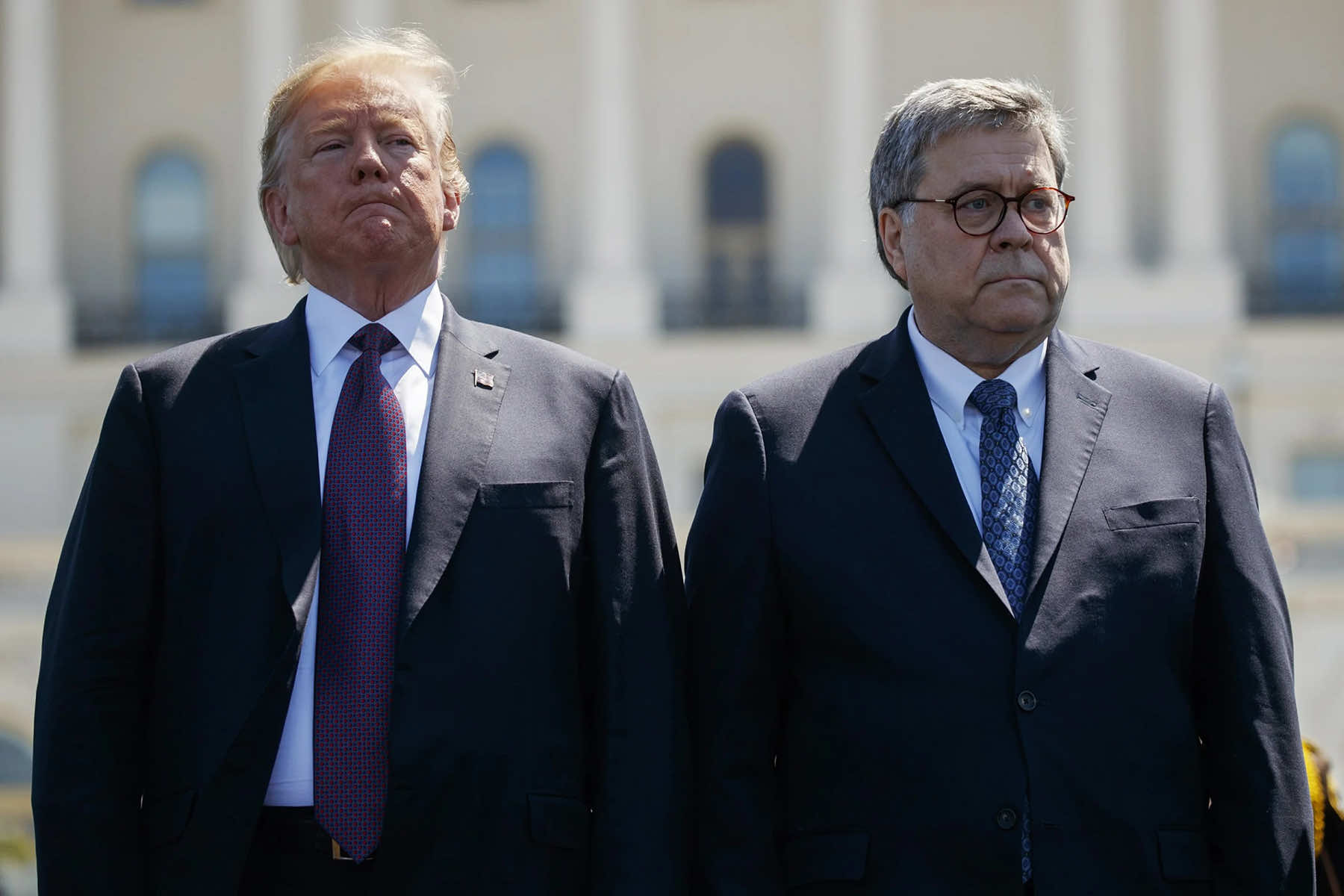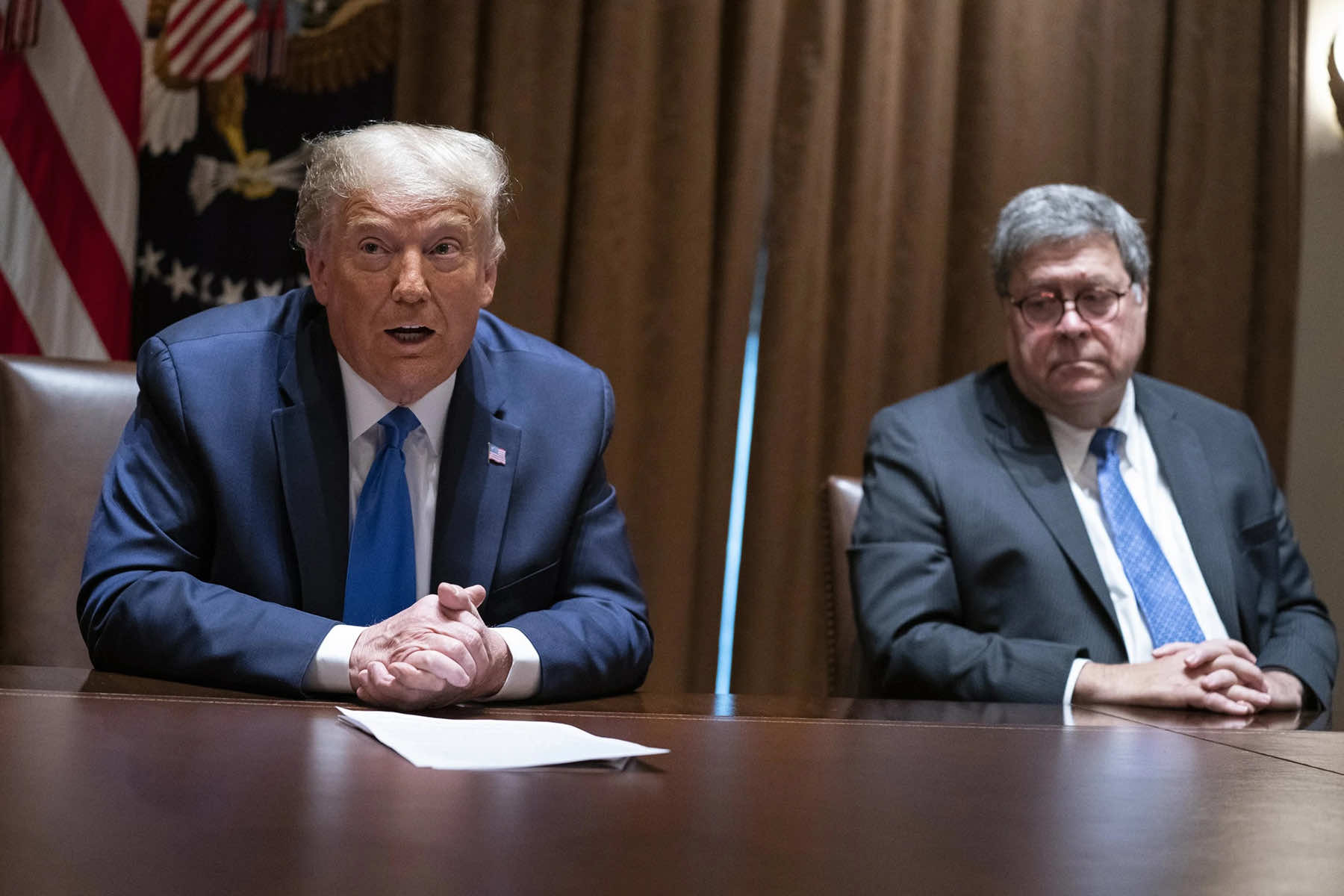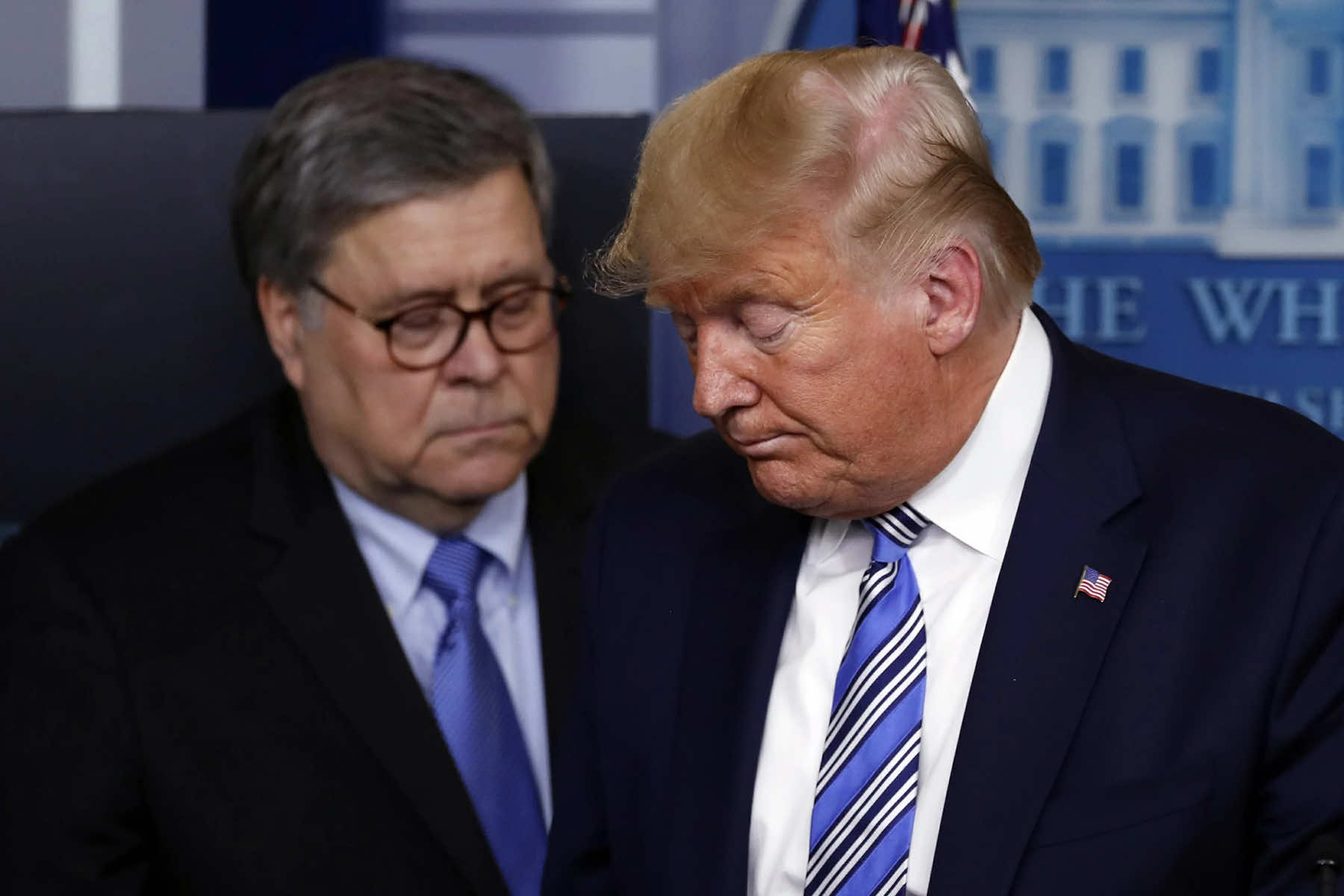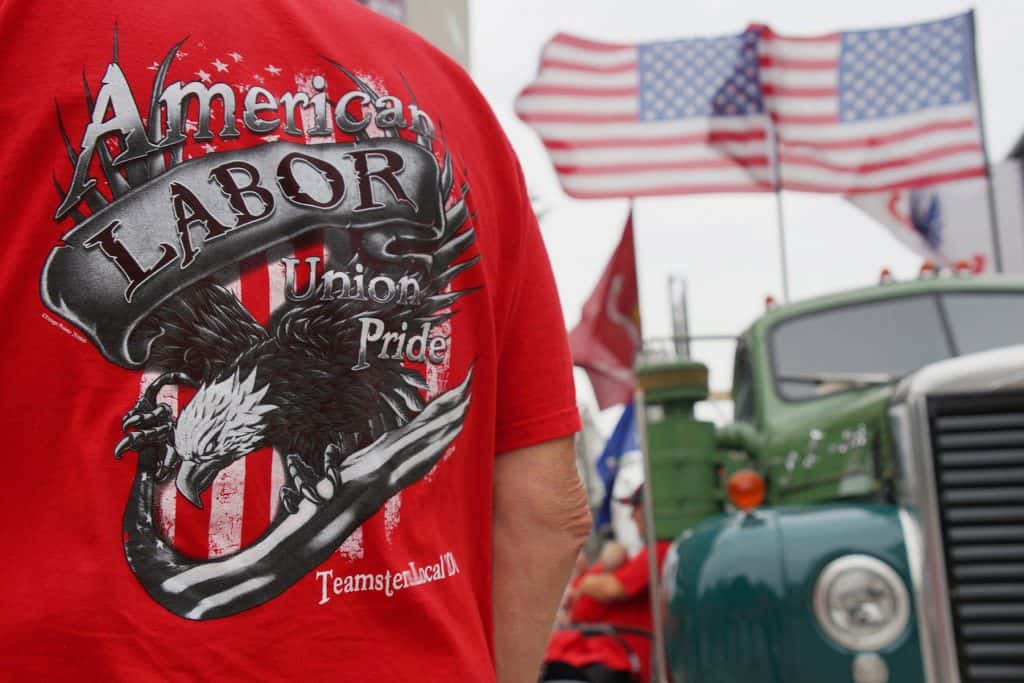
Congressman Jim Jordan wanted revenge on behalf of Donald Trump against Manhattan DA Alvin Bragg for charging Trump with election interference in Manhattan.
He threatened Bragg with “oversight”: dragging him before his committee, threatening him with contempt of Congress; putting a rightwing target on Bragg’s back by publicizing him to draw sharpshooters from as far away as Wyoming or Idaho; and facing the possibility of going to jail if he didn’t answer Jordan’s questions right. Jordan, James Comer, and Bryan Steil — three chairmen of three different committees — wrote to Bragg:
“By July 2019 … federal prosecutors determined that no additional people would be charged alongside [Michael] Cohen. … [Y]our apparent decision to pursue criminal charges where federal authorities declined to do so requires oversight….”
They were furious that Bragg would prosecute Trump for a crime that the federal Department of Justice had already decided in 2019 and announced that they weren’t going to pursue.
But why didn’t Bill Barr’s Department of Justice proceed after they’d already put Michael Cohen in prison for a year for delivering the check to Stormy Daniels to keep her quiet at least until after the election, and then lying about it? Why didn’t they go after the guy who ordered the check written, the guy who’d had sex with Daniels, the guy whose run for the presidency was hanging in the balance?
Why didn’t the Department of Justice at least investigate (they have a policy against prosecuting a sitting president) the then-president’s role in the crime they put Cohen in prison for but was directed by, paid for, and also committed by Donald Trump?
Turns out, Geoffrey Berman — the lifelong Republican and U.S. Attorney appointed by Trump to run the prosecutor’s office at the Southern District of New York — wrote a book, Holding the Line, published in September, 2022, about his experiences during that era.
In it, he came right out and accused his boss Bill Barr of killing the federal investigation into Trump’s role of directing and covering up that conspiracy to influence the 2016 election. Had Barr not done that, Trump could have been prosecuted in January of 2021, right after he left office. And Jim Jordan couldn’t complain that Alvin Bragg was pushing a case the feds had decided wasn’t worth it.
As The Washington Post noted when the book came out:
“He [Berman] says Barr stifled campaign finance investigations emanating from the Cohen case and even floated seeking a reversal of Cohen’s conviction — just like Barr would later do with another Trump ally, Michael Flynn. (Barr also intervened in the case of another Trump ally, Roger Stone, to seek a lighter sentence than career prosecutors wanted.)”
Which is why Manhattan DA Alvin Bragg had to pick up the case, if the crime was to be exposed and prosecuted.
After all, this crime literally turned the 2016 election to Trump. Without it, polling shows and political scientists argue, Hillary Clinton would have been our president for at least four years and Trump would have retired into real estate obscurity.
But Bill Barr put an end to Berman’s investigation, according to Berman. The DOJ pretended to be investigating Trump for another few months, then quietly announced they weren’t going to continue the investigation. The news media responded with a shrug of the shoulders and America forgot that Trump had been at the center of Cohen’s crime.
In 2023, the New York Times picked up Bill Barr’s cover story and ran with it, ignoring Berman’s claims, even though he was the guy in charge of the Southern District of New York. The article essentially reported that Main Justice wouldn’t prosecute because Cohen wouldn’t testify to earlier crimes, Trump might’ve been ignorant of the law, and that the decision was made by prosecutors in New York and not by Barr.
Incomplete testimony and ignorance of the law have rarely stopped prosecutors in the past from a clear case like this one appears to be (Trump signed the check and Cohen had a recording of their conversation, after all), but the story stuck and the Times ran with it.
In contrast, Berman wrote:
“While Cohen had pleaded guilty, our office continued to pursue investigations related to other possible campaign finance violations [including by Trump]. When Barr took over in February 2019, he not only tried to kill the ongoing investigations but—incredibly—suggested that Cohen’s conviction on campaign finance charges be reversed. Barr summoned Rob Khuzami in late February to challenge the basis of Cohen’s plea as well as the reasoning behind pursuing similar campaign finance charges against other individuals [including Trump]. …
“The directive Barr gave Khuzami, which was amplified that same day by a follow-up call from O’Callaghan, was explicit: not a single investigative step could be taken, not a single document in our possession could be reviewed, until the issue was resolved. …
“About six weeks later, Khuzami returned to DC for another meeting about Cohen. He was accompanied by Audrey Strauss, Russ Capone, and Edward “Ted” Diskant, Capone’s co-chief. Barr was in the room, along with Steven Engel, the head of the Office of Legal Counsel, and others from Main Justice.”
Summarizing the story, Berman wondered out loud exactly why Bill Barr had sabotaged extending their investigation that could lead to an indictment of Trump when he left office:
“But Barr’s posture here raises obvious questions. Did he think dropping the campaign finance charges would bolster Trump’s defense against impeachment charges? Was he trying to ensure that no other Trump associates or employees would be charged with making hush-money payments and perhaps flip on the president? Was the goal to ensure that the president could not be charged after leaving office? Or was it part of an effort to undo the entire series of investigations and prosecutions over the past two years of those in the president’s orbit (Cohen, Roger Stone, and Michael Flynn)?”
In retrospect, the answer appears to be, “All of the above.”
And that wasn’t Barr’s only time subverting justice while heading the Justice Department. Berman says he also ordered John Kerry investigated for possible prosecution for violating the Logan Act (like Trump is doing now!) by engaging in foreign policy when not in office.
Barr even killed a federal investigation into Turkish bankers, after Turkish dictator Erdoğan complained to Trump.
Most people know that when the Mueller investigation was completed — documenting ten prosecutable cases of Donald Trump personally engaging in criminal obstruction of justice and witness tampering to prevent the Mueller Report investigators from getting to the bottom of his 2016 connections to Russia — Barr buried the report for weeks.
He lied about it to America and our news media for almost a full month, and then released a version so redacted it’s nearly meaningless. (Merrick Garland, Barr’s heir to the AG job, is still hiding large parts of the report from the American people, another reason President Biden should replace him.)
While shocking in its corruption, as I noted here last month, this was not Bill Barr‘s first time playing cover-up for a Republican president who’d committed crimes that could rise to the level of treason against America.
He’s the exemplar of the “old GOP” that helped Nixon cut a deal with South Vietnam to prolong the War so he could beat Humphrey in 1968; worked with Reagan in 1980 to sell weapons to Iran in exchange for holding the hostages to screw Jimmy Carter; and stole the 2000 election from Al Gore by purging 94,000 Black people from the voter rolls in Jeb Bush’s Florida.
Instead of today’s “new GOP,” exemplified by Nazi marches, alleged perverts like Matt Gaetz, and racist rhetoric against immigrants, Barr’s “old GOP” committed their crimes wearing $2000 tailored suits and manipulating the law to their advantage…and still are.
For example, back in 1992, the first time Bill Barr was U.S. Attorney General, iconic New York Times writer William Safire referred to him as “Coverup-General Barr” because of his role in burying evidence of then-President George H.W. Bush’s involvement in Reagan’s scheme to steal the 1980 election through what the media euphemistically called “Iron-Contra.”
On Christmas day of 1992, the New York Times featured a screaming all-caps headline across the top of its front page: Attorney General Bill Barr had covered up evidence of crimes by Reagan and Bush in the Iran-Contra “scandal.” (see the bottom of this article)
Earlier that week of Christmas, 1992, George H.W. Bush was on his way out of office. Bill Clinton had won the White House the month before, and in a few weeks would be sworn in as president.
But Bush Senior’s biggest concern wasn’t that he’d have to leave the White House to retire back to one of his million-dollar mansions in Connecticut, Maine, or Texas: instead, he was worried that he may face time in a federal prison after he left office, a concern nearly identical to what Richard Nixon faced when he decided to resign to avoid prosecution.
Independent Counsel Lawrence Walsh was closing in fast on Bush and Reagan, and Bush’s private records, subpoenaed by the independent counsel’s office, were the key to it all.
Walsh had been appointed independent counsel in 1986 to investigate the Iran-Contra activities of the Reagan administration and determine if crimes had been committed.
Was the criminal Iran-Contra conspiracy limited, as Reagan and Bush insisted (and Reagan said on TV), to later years in the Reagan presidency, in response to an obscure hostage-taking in Lebanon?
Or had it started in the 1980 presidential campaign against Jimmy Carter with treasonous collusion with the Iranians, as the then-president of Iran asserted? Who knew what, and when? And what was George H.W. Bush’s role in it all?
In the years since then, the President of Iran in 1980, Abolhassan Bani-Sadr, has gone on the record saying that the Reagan campaign reached out to Iran to hold the hostages in exchange for weapons.
“Ayatollah Khomeini and Ronald Reagan,” President Bani-Sadr told the Christian Science Monitor in 2013, “had organized a clandestine negotiation, later known as the ‘October Surprise,’ which prevented the attempts by myself and then-US President Jimmy Carter to free the hostages before the 1980 US presidential election took place. The fact that they were not released tipped the results of the election in favor of Reagan.”
That wouldn’t have been just an impeachable and imprisonable crime: it was every bit as much treason as when Richard Nixon blew up LBJ’s 1968 peace talks with North and South Vietnam to win that November’s election against Vice President Hubert Humphrey.
Walsh had zeroed in on documents that were in the possession of Reagan’s former defense secretary, Caspar Weinberger, who all the evidence showed was definitely in on the deal, and President Bush’s diary that could corroborate it.
Elliott Abrams had already been convicted of withholding evidence about it from Congress, and he may have even more information, too, if it could be pried out of him before he went to prison. But Abrams was keeping mum, apparently anticipating a pardon.
This was the moment the “old GOP” was at the height of its power and prestige, and Bush and Barr weren’t about to let it be exposed for the criminal enterprise that the “party of Lincoln” had become.
Weinberger, trying to avoid jail himself, was preparing to testify that Bush knew about the deal to hold the hostages and even participated in it, and Walsh had already, based on information he’d obtained from the investigation into Weinberger, demanded that Bush turn over his diary from the campaign. He was also again hot on the trail of Abrams.
So Bush called in his attorney general, Bill Barr — the respectable scion of the “old GOP” — and asked his advice.
At that point Barr, along with Bush, was already up to his eyeballs in cover-ups of other shady behavior by the Reagan administration.
Safire had started referring to Barr as “Coverup-General” in the midst of another scandal — Bush illegally selling weapons of mass destruction to Saddam Hussein — because the Attorney General was already covering up for Bush, Weinberger, and others in the Reagan administration with a scandal the newspapers called “Iraqgate.”
Ironically, that illegal sale of weapons to Saddam Hussein in the late 1980s and early 1990s was cited by George W. Bush, Bush’s son, as part of his justification for illegally invading Iraq in 2003.
On October 19, 1992, Safire wrote in The New York Times of Barr’s unwillingness to appoint an independent counsel to look into Iraqgate:
“Why does the Coverup-General resist independent investigation? Because he knows where it may lead: to Dick Thornburgh, James Baker, Clayton Yeutter, Brent Scowcroft and himself [the people who organized the sale of WMD to Saddam]. He vainly hopes to be able to head it off, or at least be able to use the threat of firing to negotiate a deal.”
Now, just short of two months later, Bush was asking Barr for advice on how to avoid another very serious charge in the Iran-Contra crimes they committed to defeat Jimmy Carter in the 1980 election. How, he wanted to know, could they shut down Walsh’s investigation before Walsh’s lawyers got their hands on Bush’s diary?
In April of 2001, safely distant from the swirl of DC politics, the University of Virginia’s Miller Center was compiling oral presidential histories, and interviewed Barr about his time as AG in the Bush White House. They brought up the issue of the Weinberger pardon, which put an end to the Iran-Contra investigation, and Barr’s involvement in it.
Turns out, Barr was right in the middle of it.
“There were some people arguing just for [a pardon for] Weinberger, and I said, ‘No, in for a penny, in for a pound,’” Barr told the interviewer. “I went over and told the President I thought he should not only pardon Caspar Weinberger, but while he was at it, he should pardon about five others.”
Which is exactly what Bush did, on Christmas Eve when most Americans were with family instead of watching the news. The holiday notwithstanding, the result was explosive.
America knew that both Reagan and Bush were up to their necks in the Iran-Contra hostages-for-weapons scandal, and Democrats had been talking about treason, impeachment, or worse.
The independent counsel had already obtained one conviction, three guilty pleas, and two other individuals were lined up for prosecution in the case that lost Jimmy Carter the White House. And Walsh was closing in fast on Bush himself.
The second paragraph of the Times story by David Johnston laid it out:
“Mr. Weinberger was scheduled to stand trial on Jan. 5 on charges that he lied to Congress about his knowledge of the arms sales to Iran and efforts by other countries to help underwrite the Nicaraguan rebels, a case that was expected to focus on Mr. Weinberger’s private notes that contain references to Mr. Bush’s endorsement of the secret shipments to Iran.” (emphasis added)
History shows that when a Republican president is in serious legal trouble, the “old GOP’s” go-to guy was Bill Barr.
For William Safire, Iran-Contra was déjà vu all over again. Four months earlier, referring to Iraqgate (Bush’s criminally selling WMDs to Iraq), Safire opened his article, titled “Justice [Department] Corrupts Justice,” by writing:
“U.S. Attorney General William Barr, in rejecting the House Judiciary Committee’s call for a prosecutor not beholden to the Bush Administration to investigate the crimes of Iraqgate, has taken personal charge of the cover-up.”
Safire accused Barr of not only rigging the cover-up, but of being one of the criminals who could be prosecuted.
“Mr. Barr,” wrote Safire in The New York Times in August of 1992, “…could face prosecution if it turns out that high Bush officials knew about Saddam Hussein’s perversion of our Agriculture export guarantees to finance his war machine.”
He added:
“They [Barr and colleagues] have a keen personal and political interest in seeing to it that the Department of Justice stays in safe, controllable Republican hands.”
Earlier in Bush’s administration, Barr had succeeded in blocking the appointment of an investigator or independent counsel to look into Iraqgate, as Safire repeatedly documented in the Times.
In December, Barr helped Bush block indictments from another independent counsel, Lawrence Walsh, and eliminated any risk that Reagan or George H.W. Bush would be held to account for Iran-Contra.
Walsh, wrote Johnston for the Times on Christmas Eve, “plans to review a campaign diary kept by Mr. Bush.” The diary would be the smoking gun that would nail Bush to the scandal.
“But,” noted the Times, “in a single stroke, Mr. Bush [at Barr’s suggestion] swept away one conviction, three guilty pleas and two pending cases, virtually decapitating what was left of Mr. Walsh’s effort, which began in 1986.”
And Walsh didn’t take it lying down. The Times report noted that:
“Mr. Walsh bitterly condemned the President’s action, charging that ‘the Iran-contra cover-up, which has continued for more than six years, has now been completed.’”
Independent Counsel Walsh added that the diary and notes he wanted to enter into a public trial of Weinberger represented:
“{E]vidence of a conspiracy among the highest ranking Reagan Administration officials to lie to Congress and the American public.”
The phrase “highest ranking” officials almost certainly included Reagan, Bush, and Barr himself.
Walsh had been fighting to get those documents ever since 1986, when he was appointed and Reagan still had two years left in office. Bush’s and Weinberger’s refusal to turn them over, Johnston noted in the Times, could have, in Walsh’s words:
“[F]orestalled impeachment proceedings against President Reagan” through a pattern of “deception and obstruction.”
Back in the 1990s, Barr successfully covered up the involvement of two Republican presidents — Reagan and Bush — in two separate and impeachable “high crimes,” one of them almost certainly treason committed just to win a presidential election.
And now we learn he apparently went so far as to cover up Trump’s involvement with Russia (the Mueller Report), and his scheme to fix the 2016 election by shutting up Stormy Daniels, Karen MacDougal, and the Trump Tower doorman.
And Barr’s apparently still at it! Just last month, The New York Times revealed how Barr apparently inserted himself into a Justice Department criminal investigation of a billion-dollar corporation for allegedly corruptly hiding their income offshore to avoid paying their fair share of taxes.
Alex Brandon (AP), Evan Vucci (AP), and Jane Rosenberg (via AP)
© Thom Hartmann, used with permission. Originally published on The Hartmann Report as Bill Barr: The GOP’s Master “Fixer” for Decades Exposed
Subscribe to The Hartmann Report directly and read the latest views about U.S. politics and other fascinating subjects seven days a week.

















